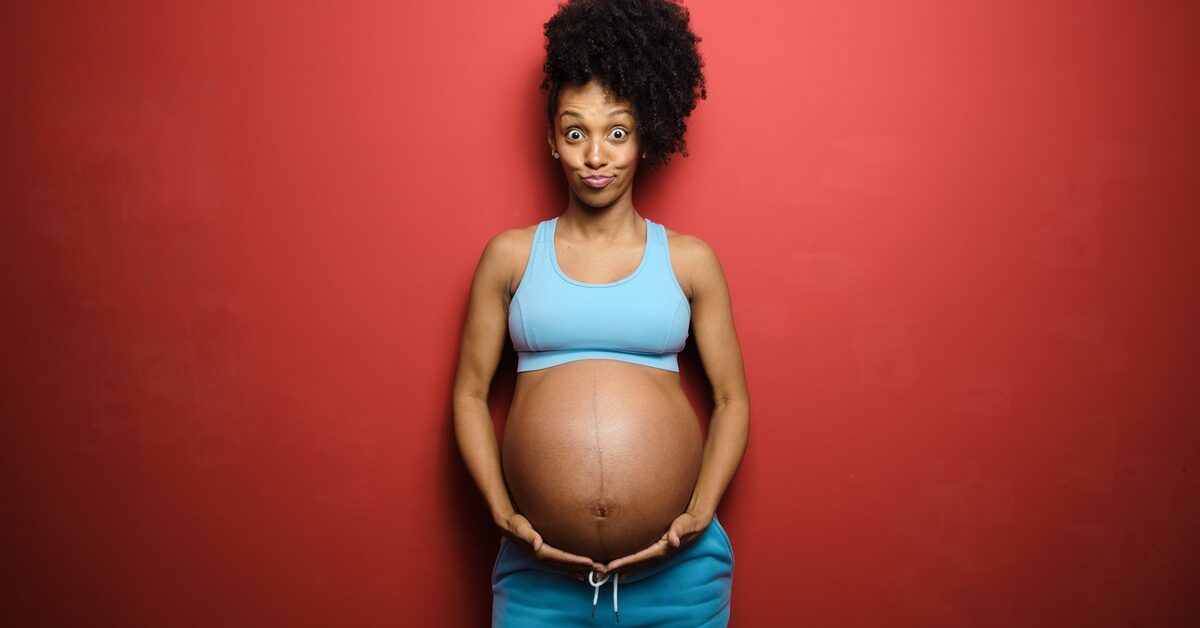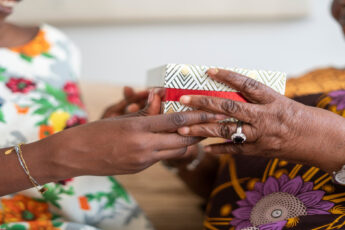As universal as pregnancy is, there are so many aspects of it that we simply don’t talk about. Sure, everyone knows about morning sickness, quirky cravings, and hormone fluctuations, but those only scratch the surface of what your body goes through during pregnancy. There are countless other symptoms that get much less attention because they’re not quite as common or because they’re a little awkward to talk about.
Embarrassment never helped anyone, though, and you deserve to know what you’re going through—and what Black moms before you have done to navigate similar situations. Learn more about these awkward pregnancy symptoms it’s time to talk about.
Sore Gums
Sore or bleeding gums are often a sign that you need to floss more, so what happens if your dental habits are immaculate but your gums still hurt? Don’t fret—hormone changes during pregnancy can increase the blood flow to your gums. This makes them more sensitive and can lead to swelling and bleeding whenever you floss or brush your teeth. It’s a perfectly normal symptom that goes away after you have your baby.
In the meantime, try switching to a soft-bristled toothbrush and brush slowly and gently to alleviate any discomfort. Don’t forget to schedule regular cleanings and checkups with your dentist, too!
Incontinence
Bladder control: the awkward pregnancy symptom no one wants to talk about. From small leaks to more frequent trips to the bathroom, pregnancy incontinence happens to countless women during pregnancy. It can feel uncomfortable and embarrassing, but like every other symptom on this list, it’s a completely natural (and usually temporary!) change.
Pregnancy incontinence occurs due to the loosening of your pelvic floor muscles. This flexibility is great for your developing baby but not so great for your bladder control. Thankfully, there are plenty of ways to help manage incontinence. Pelvic floor exercises, high-fiber foods, and a decrease in caffeine intake can help. You can also try discreet incontinence underwear to help you stay comfortable throughout the day.
Hair Loss
Many women experience hair loss during the postpartum period. This is because hair growth happens in multiple phases, including growing and resting. At any given time, about 90 percent of your hair is actively growing, but the other 10 percent is resting—which means it falls out so new hair can grow in its place.
All of this relies on your hormone levels, which shift and change during pregnancy. Increased estrogen prolongs the growing phase, so fewer hairs rest and fall out. Once you give birth and your estrogen levels go back to normal, all the hair that hasn’t had a chance to enter the resting phase starts to fall out.
It might feel alarming at first—especially if you noticed healthier, faster-growing hair during your pregnancy—but it’ll taper off as your hormone levels balance themselves out. In the meantime, be gentle with your hair. Minimize the use of heat, avoid overly tight hairstyles, and keep your hair and scalp hydrated. If you ever wanted an excuse for a scalp massage, now’s the time.
Embarrassment shouldn’t keep you from taking care of yourself and the women in your life. Being honest about your experiences—even uncomfortable ones like these—is what helps Black women support each other now and across time.








Leave a Reply